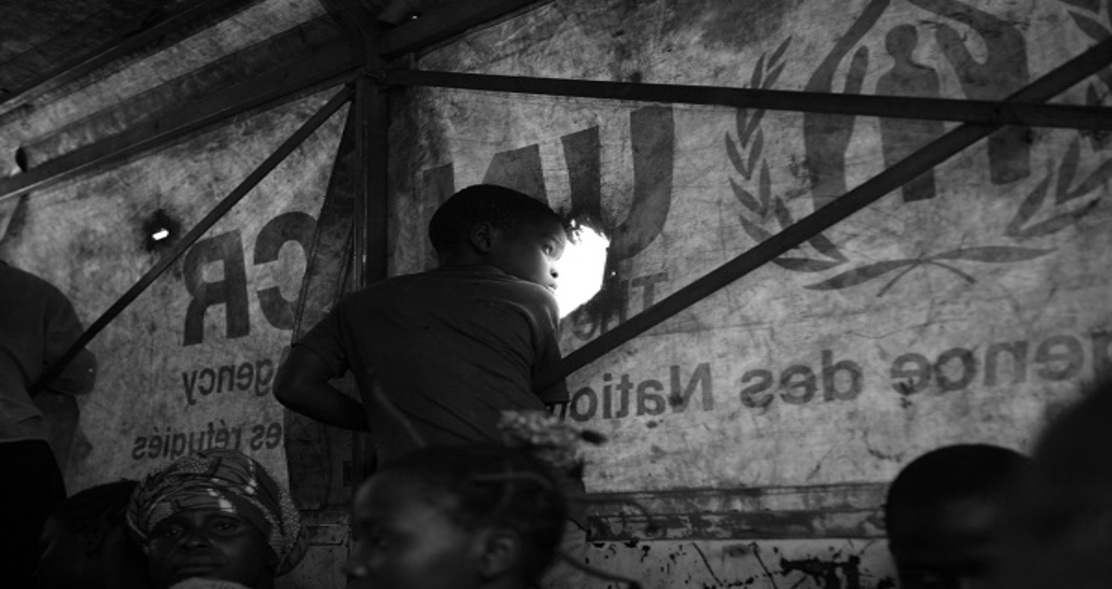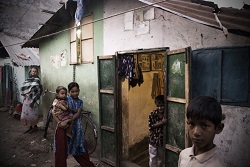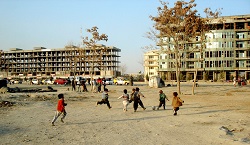World Refugee Day: 5 things to know about refugees and internally displaced persons in the MENA region

Photo: IPC-IG/Jenn Warren
By Júlia Matravolgyi, Communications Intern*
Brasília, 20 June 2018 - On World Refugee Day, held every year on 20 June, the United Nations hopes to raise awareness about the vulnerabilities faced by millions of people who have had to leave their countries or are on the run at home, as well as commemorate their strength, courage and perseverance. Moreover, the date was established to increase public understanding regarding the importance of policies, campaigns and initiatives related to them.
Refugees often need assistance from social protection programmes, which comprise one of the main areas of research of the International Policy Centre for Inclusive Growth (IPC-IG). To celebrate World Refugee Day and the importance of discussing policies related to displaced persons living in vulnerable conditions, here are five important things you can learn about refugees by reading “Social Protection after the Arab Spring”, a special edition of the Centre’s Policy in Focus magazine:
- Without government assistance, most refugees in the Middle East and North Africa (MENA) region are dependent on humanitarian aid from international agencies.

As social assistance and social security entitlements are not ‘portable’, refugees typically lose access to these benefits and, in many cases, are not entitled to the same social benefits received by citizens of host countries. Syrian refugees in Jordan, for example, receive no support from the government. Also, the influxes of Syrian refugees into several MENA countries, as well as of Somali refugees into Yemen, have impacted on local livelihoods among host communities, who face competition for work and for access to services, and have contributed to social tensions and civil unrest in some cases.
It is important to remember that refugees, internally displaced persons (IDPs) and migrants are treated differently in different contexts. Even though some are fully integrated into host communities, many live in camps and/or informal settlements, in marginalised conditions and with variable access to humanitarian support, social services and livelihood opportunities.
- Most of the world’s refugees and IDPs are located in the MENA region, which, in addition to civil conflicts, faces an economic crisis. Economic growth has stagnated at 2 per cent per year since 1990, the lowest of any world region.
As many countries are undergoing a political transition or experiencing civil unrest—which has escalated since the Arab Spring—unemployment stands at 15 per cent, the highest in the world. Average income poverty has been persistently above 20 per cent since 1990 and is considerably higher in certain countries, notably Yemen and Sudan. Most Egyptians fell into poverty or near poverty at least once between 2005 and 2008. However, there is considerable diversity across the region, with some countries being wealthy and stable while others are poor and/or in protracted crisis.
- Of the countries that have received the bulk of refugee influx in the region, only Turkey has opened up its national social protection system to refugees.

Other countries were either unable to do so because of the rudimentary state of their national social protection system and/or were unwilling to open national provisions to non-citizens for political reasons. As a result, social protection for refugees in the region has mainly been provided by international agencies in the form of humanitarian cash transfers.
- Against a global trend of falling malnutrition rates, MENA is the only region where this indicator has been rising since 2000. Refugees and IDPs typically lose their economic and physical access to food.
Poverty, food insecurity and instability are critically linked, making social protection a relevant policy response for MENA. In eight countries in the region, including Egypt, Iraq, Libya and Sudan, more than 20 per cent of households are considered food-insecure; in Yemen, this figure has soared to 65 per cent. Because of limited productive resources, primarily a lack of water and arable land, the region has become the largest importer of cereals in the world, with imported food providing about half of all calories consumed.
In many cases, refugees and IDPs have difficulties in accessing safe and sustainable income opportunities in host countries. At the same time, the scale of conflict and displacement poses extraordinary demands on ensuring the continued provision of basic services and social assistance for vulnerable citizens.
- In MENA countries hosting large refugee populations, it is important for humanitarian actors to leverage their assistance platforms to strengthen national social protection systems. This approach is unusual for traditional emergency operations, which are more likely to run separately from state social protection programmes.
While the tragedy of the massive crisis affecting Syria, Iraq and bordering countries hosting refugees is still unfolding, it is important to underline that humanitarian systems have been able to innovate and develop approaches to meet rising demands with scarce resources. Active labour market policies, school meals and nutrition interventions, alongside country capacity-strengthening efforts related to improved targeting, enhanced monitoring systems and stronger operational platforms that can scale up assistance more rapidly, represent some areas with high potential.
* Under the supervision of Denise Marinho dos Santos, Senior Communications Officer